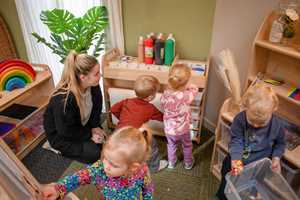
Lesson Ideas and Activities
Outdoor Learning Activities to Help Children with Vestibular Processing
Vestibular processing is all about movement and balance of the body. A person’s vestibular processing system is key to the relationship between their body, gravity and the physical world around them.
It’s not a system we hear an awful lot about and it often gets taken for granted, yet it plays such an important role. It informs us where our body is in space, whether we are moving or still, how we are moving, how fast and in what direction.
As children grow and develop, it’s essential that they have plenty of opportunities to exercise and maintain a healthy vestibular processing system.
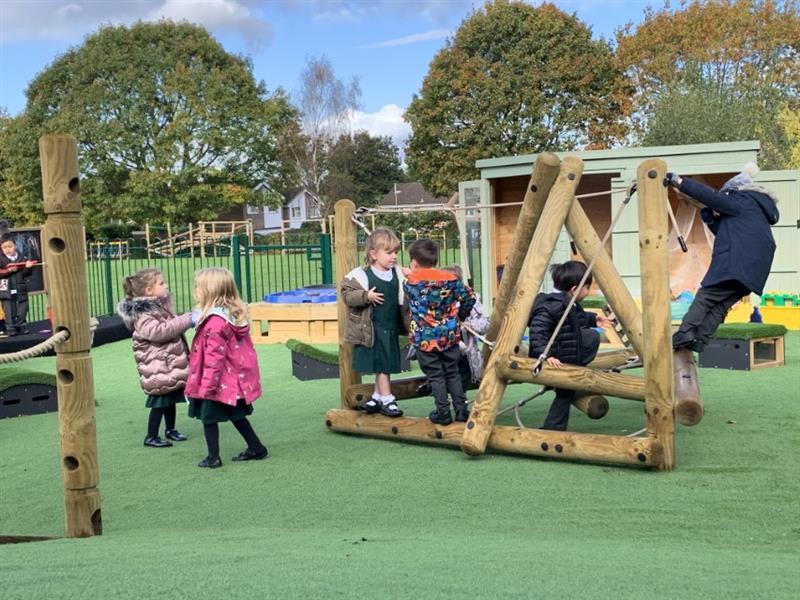
Naturally, the outdoors offers the perfect environment for this. There are lots of physical outdoor activities that children can enjoy, during the school day, that help promote vestibular processing - and we will explore them here.
Before we do, it’s helpful to understand a bit more about how the vestibular processing system works and what it involves:
The vestibular processing system itself centres, believe it or not, in the ear. Organs located within the non-auditory region of the inner ear detect fluid movement, so they can provide us with information as to where our head is in space.
This information in turn can tell us about our orientation and our balance, which provides us with gravitational security - the confidence to interact with the surrounding environment without falling over.
The vestibular processing system forms part of the central nervous system and is crucial for developing balance and co-ordination. It’s a foundation for developing our sensory systems: vision, touch, sound and proprioception (awareness of the position and movement of the body) and it’s what allows us to trust our movements and tolerate motion.
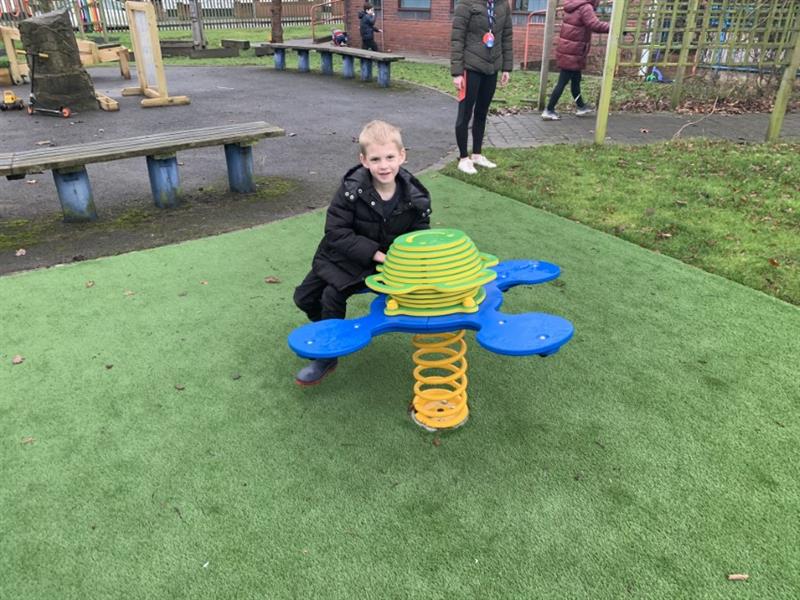
The vestibular processing system is connected with the cerebellum, which is part of the brain that controls movement, co-ordination, balance, equilibrium and muscle tone. This is the link that brings visual information into the mix to enable eye movement reflexes. We need this to track moving objects, stabilize our gaze and differentiate between objects.
This is particularly impactful for a child during the school day for activities such as reading, maintaining attention when looking between alternate resources (such as a white board and a workbook), playing sports and adjusting visual attention while moving.
What does this all mean, on a daily basis, for a child?
Apart from the obvious importance of being able to move around safely and without falling and to complete learning tasks in the classroom, having a healthy vestibular processing system means that a child can be more confident in enjoying activities that involve movement of any kind, on or off the floor.
It gives them the control they need to start and stop movement activities, including all those needed for good exercise - walking, running, jumping and climbing.
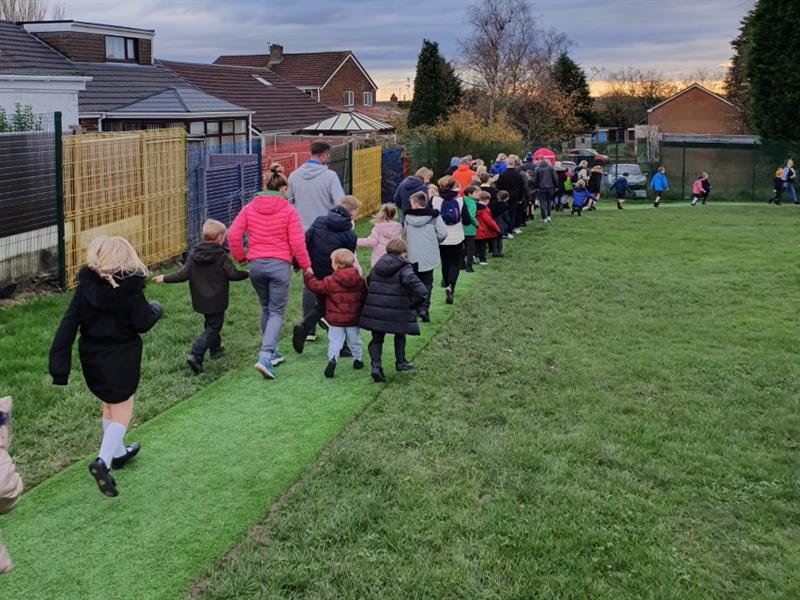
The vestibular processing system is needed to allow a child to enjoy typical playtime activities such as using a swing or going down a slide. Their posture needs to change accordingly so that they can stay upright and understand where they are in space.
It provides the information that they need for their body’s protective reflexes to work such as putting their hands out to protect themselves if they fall, or running away from dangerous situations.
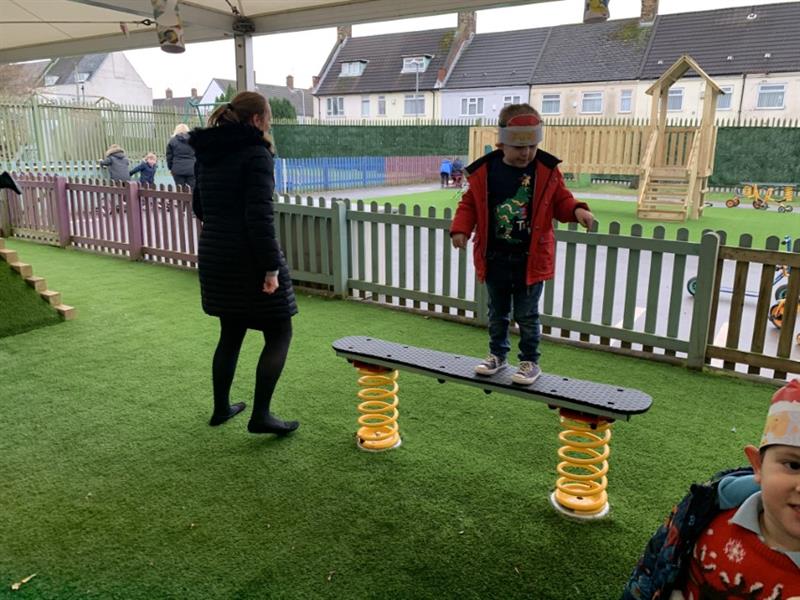
What challenges may a child who has a dysfunctional vestibular processing system face?
A child who suffers with problems associated with vestibular processing can find many aspects of everyday life very challenging. Their reaction to movement may be either hyporesponsive - where they crave movement, or hyperresponsive - where they are fearful of any changes in gravity and position, or both.
A child who is hyperresponsive to the vestibular sense may be fearful of movement, because they feel insecure and unbalanced. They tend to prefer sedentary activities and avoid situations where their feet leave the ground, such as swinging or climbing.
They may be fearful of going up and down stairs, find it hard to sit upright and concentrate and may find moving around difficult, often moving slowly and cautiously.
On the other hand, a child who is hyporesponsive to the vestibular sense may appear to be in constant motion, unable to sit still or stay in one place. They are always on the go and this can really have an impact on their ability to sustain concentration without moving.
They may appear clumsy and unco-ordinated, impulsively running, jumping and moving around all the time, seemingly unaware of any physical dangers. They may often lose things and can sometimes seem lost themselves.
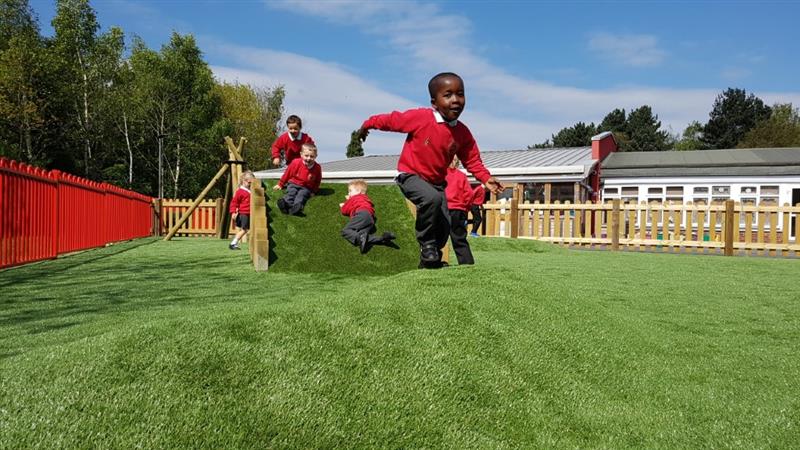
Children on the autistic spectrum often experience difficulties with vestibular processing, in particular balance and body connectivity. They tend to struggle to understand the inter-connectivity of their body parts and how this relates to the space around them.
Sequencing activities and activities that involve bilateral co-ordination, such as jumping, throwing and catching are a challenge.
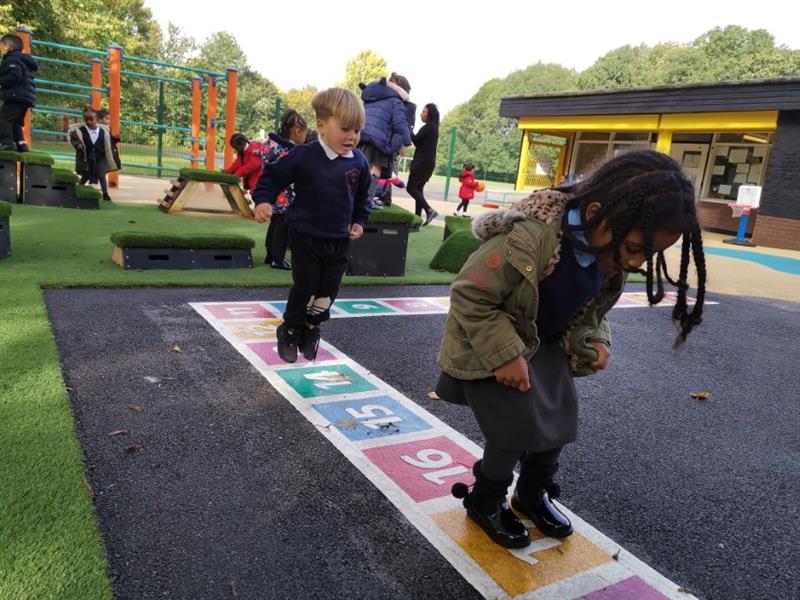
This means that they are often at a higher risk of having an accident or injury such as misjudging the distance between steps, or how far away an object is as they are walking towards it. This can be a very frightening experience as one child described:
“If a ball is coming towards me, I can only see it getting bigger, I don’t see that it is getting nearer and only appears bigger because of this.”
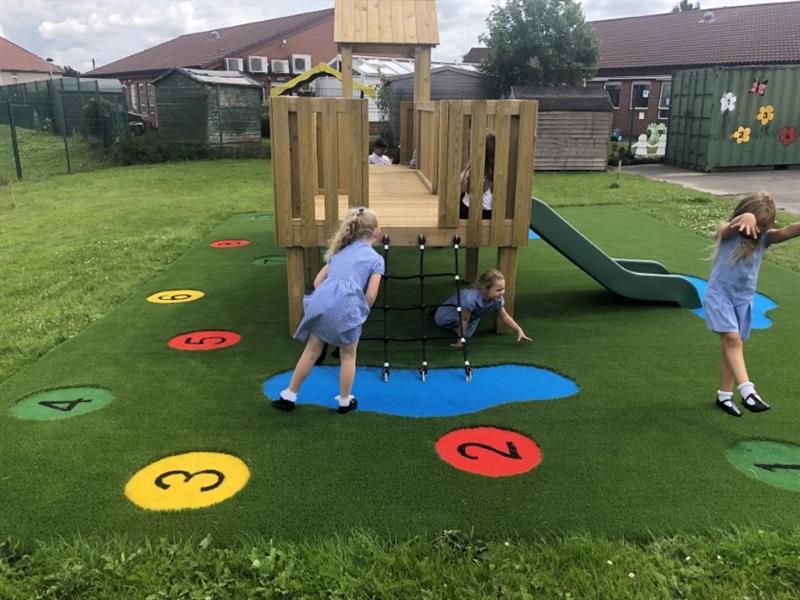
How can schools use their outdoor playground to support pupils in developing a healthy vestibular processing system?
Schools need to provide children with a range of platforms and opportunities to engage in activities that support the vestibular processing system. Regular play and exercise on equipment that allows children to experience vestibular input - the sensation of any change in position, direction, or movement of the head - requires children to practise classifying, integrating and processing the input.
Of course the children will have no idea that they’re doing this. As far as they’re concerned, it’s all about play - and so it should be! But it’s exactly the kind of play that will enable them to better attend to, and cope with, everyday functional tasks.
We design and install a superb range of Outdoor Playground Equipment For Schools and Nurseries, that promotes vestibular processing. The following activities and Pentagon products are ideal for allowing your pupils to experience the full range of movement necessary to support the vestibular processing system:
Trim Trails and Playframes
Climbing equipment is absolutely brilliant for exercising the vestibular processing system - right from EYFS and all the way up through the Key Stages. Trim Trails and Playframes encompass so many different elements that challenge the vestibular processing system in every way - probably the best playground resources a school could have in this regard.
We have a broad range of Trim Trail and Playframe designs built at different heights, and with different levels of challenge, to suit the age and ability of your pupils.
Trails and frames that incorporate a Trapeze Swing Traverse, a Rope Swing Traverse, Pull Up Bars or Monkey Bars allow children to take their feet off the ground, swing and hang upright or upside down, any which way they can. They require lots of movement, posture adjustment and visual stabilisation.
Opportunities to practise balance, moving at different heights off the ground, stopping and starting and changing direction are supported by features such as Balance Beams, Stepping Logs, Log Weavers, Net Traverses and Climbing Panels.
Kinetic Playground Equipment
Kinetic Playground Equipment such as swings, slides and roundabouts offer plenty of opportunity for movement and adjusting posture and vision. They allow children to experience acceleration and deceleration, fast versus slow, alongside the effects of gravity.
Riding on Swings that support slow rocking, linear motion and rhythmic movements can have a calming effect on the nervous system and can decrease hyper-reactive responses to sensory input.
Each of our unique Playground Climbing Tower designs incorporate a slide as an exit option for children to try out as and when they are ready, allowing them to build up the confidence to experience the sensation of sliding in their own time.
A Wobbly Bridge or Clatter Bridge are popular smaller products that allow children to practice balance in motion - with supportive hand rails to help steady themselves if they do struggle with vestibular processing.
Obstacle Courses
Climbing through an obstacle course, or any other activity which involves engaging in movement while trying to complete a functional task at the same time is not always easy, but really good work for promoting vestibular processing.
Think about trying to hit a Target with a beanbag whilst on a Swing. It requires great vestibular input!
Our Get Set, Go! Blocks are a brilliant obstacle resource for EYFS children, presenting alternative movement options such as climbing, crawling, stepping, jumping and rolling.
They can be set up in different layouts as required to reduce or increase the challenge and the range of movement required. Ask children to manoeuvre a ball around the course, or play throw and catch games with a ball or a beanbag as they move from one block to another, to exercise their vestibular system.
Specialist Products
Our fantastic range of Specialist Products for children with Special Educational Needs, include products designed to support children who have a dysfunctional vestibular processing system.
Our new In-Out Shapes and our Sensory Circuit Alerting Frame and Up and Down Slide are popular as they offer balance and stimulation - presenting opportunities for children to climb, stretch and hang parts of their body without taking them too far from the floor - and they’re easy to grip, too.
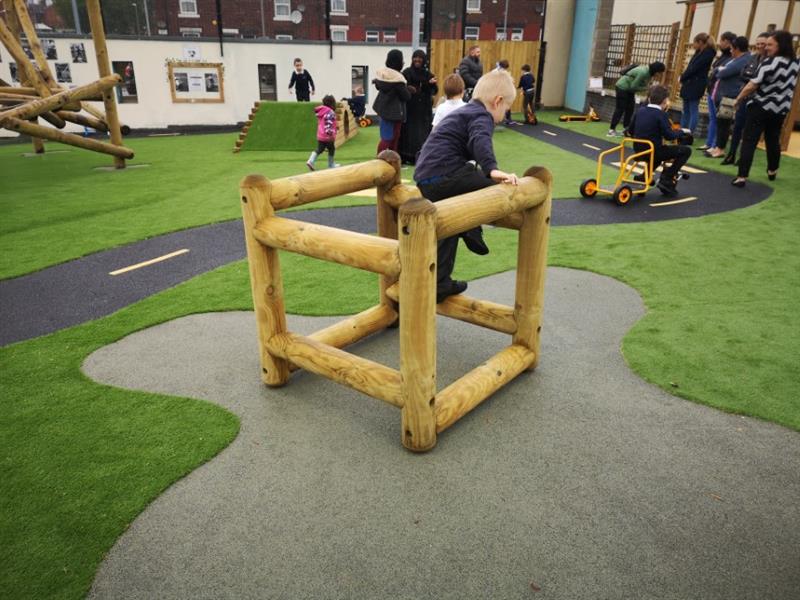
Playground Surfacing
Activities that involve walking, running, jumping and skipping on different services are really important for children who are either hyper or hypo sensitive to the vestibular sense.
Installing a combination of different types of Playground Surfacing in your school playground gives them the opportunity to experience different textures and pressures underfoot and to learn how to navigate their way around safely.
Textured Artificial Grass, for example, combined with smooth rubber Wetpour Safety Surfacing that has “give,” provides a good contrast. Both of these surfaces can be installed with a forgiving, impact-absorbing underlay to reduce the likelihood of injury as children are playing.
Our innovative range of Playground Surfacing options have the added bonus of being suitable to use in all weathers, so children can exercise outdoors all year round.
We can bespoke-design our Playground Surfacing to incorporate Playground Mounds - perfect for encouraging children to practice rolling down and stimulating the vestibular system.
We also have a range of interactive Playground Markings that turn the floor into a great resource for challenging the vestibular processing system further. Try hopping, twisting and turning along a 4-Way Hopscotch and counting out the numbers at the same time!

Good luck - and we hope you have fun as you go!
Our complete range of Active Playground Equipment for schools and nurseries support vestibular processing, and we’re always available to provide advice on finding the right kind of equipment for your pupils.
If you are looking to improve your school playground or nursery garden in any area, we offer a free, no-obligation, on-site consultation with one of our playground specialists. Please do not hesitate to Contact Us for further information.





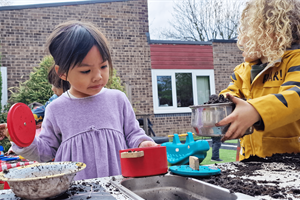
 (Custom).jpg)